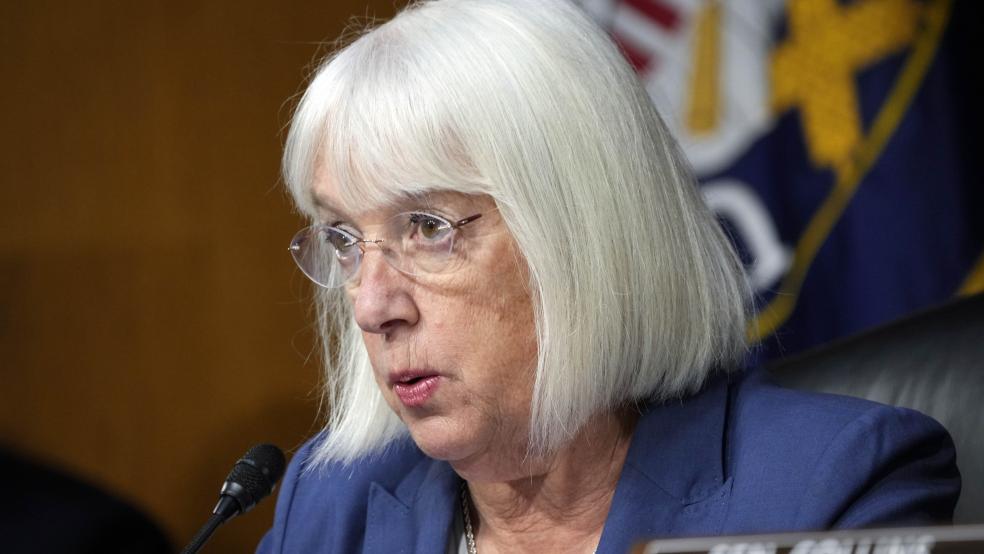The Senate Appropriations Committee on Thursday approved funding levels for fiscal year 2024 in line with the caps established under the recent bipartisan deal to raise the debt limit. The $1.59 trillion total is about $120 billion higher than the funding level approved by the House. The Senate committee vote fell along party lines, with all Republicans opposed to the proposed allocations.
Thursday’s action sets up a clash between the two chambers and another potential fiscal showdown between Democrats and Republicans.
“The disagreement is a significant setback for the appropriations process, as the Senate will ultimately require 60 votes—meaning bipartisan support—to advance spending bills and avoid a shutdown this fall,” Eric Katz of Government Executive writes. “Lawmakers on both sides acknowledged the hitch, but expressed optimism they can ultimately come together on an agreement.”
Democratic Sen. Patty Murray of Washington, who heads the Appropriations Committee, and Sen. Susan Collins of Maine, the top Republican on the panel, said that they hope to move forward in bipartisan fashion. “We are determined to continue working together in a bipartisan manner to craft serious funding bills that can be signed into law,” they said in a joint statement. “Keeping the Senate appropriations process moving full steam ahead and in a bipartisan way is critical. Our nation absolutely must be able to count on a dependable appropriations process as we grapple with urgent challenges at home and abroad. We are both committed to ensuring that the voice of the Senate is heard through the appropriations process and expect a busy summer of markups and continued bipartisan deliberation.”
Collins reportedly said she voted against the allocations due to concerns that they did not adequately fund the Defense and Homeland Security departments. “I hope that in the weeks ahead we will be able to reach an agreement to ensure that our military and the Department of Homeland Security have the resources they need to keep our country safe,” she said, per GovExec.
Murray acknowledged that many lawmakers, herself included, are concerned about the topline spending levels set under the debt ceiling deal.
“This is not an agreement that I would have made—and as I said on the floor when the Senate considered the legislation—I am worried about how it will limit our ability to make necessary investments in our country’s future,” she said in her opening remarks, adding, “The way we make the best of what we have to work with is by pushing forward and writing serious bills that can be signed into law, and then passing the strongest possible bills in a timely, bipartisan way to keep our government running smoothly and avoid an automatic, across-the-board cut to everything.”
Senate appropriators also voted unanimously to advance the first two of 12 annual appropriations bills, the “Military Construction, Veterans Affairs, and Related Agencies” bill and the “Agriculture, Rural Development, Food and Drug Administration, and Related Agencies” bill.
The bottom line: Both House and Senate appropriators are working to pass the required annual spending bills, but they’ll have to resolve their differences over appropriations levels or risk a government shutdown and a 1% across-the-board spending cut if they fail to approve the spending bills by the end of the year.





